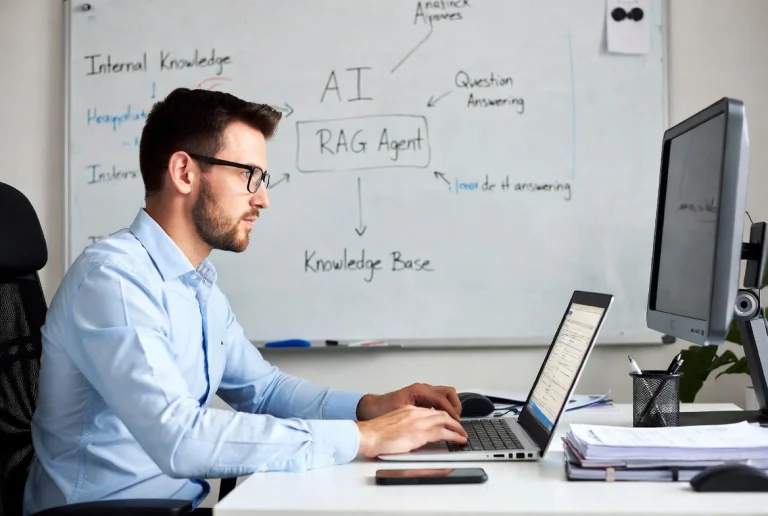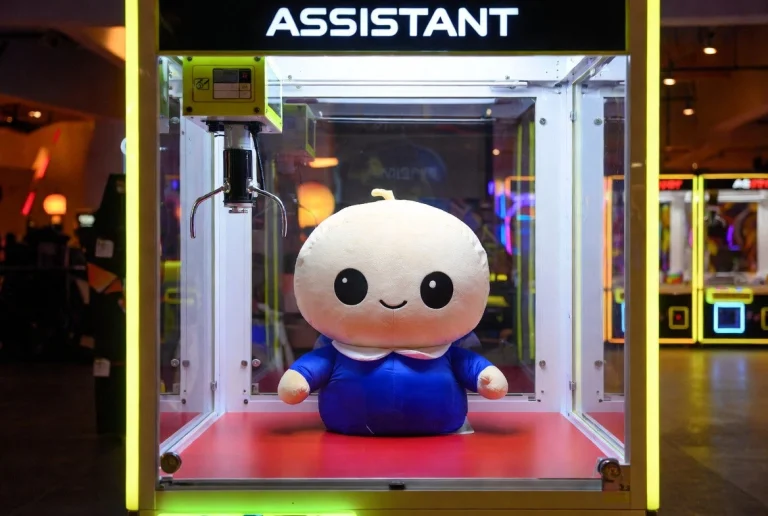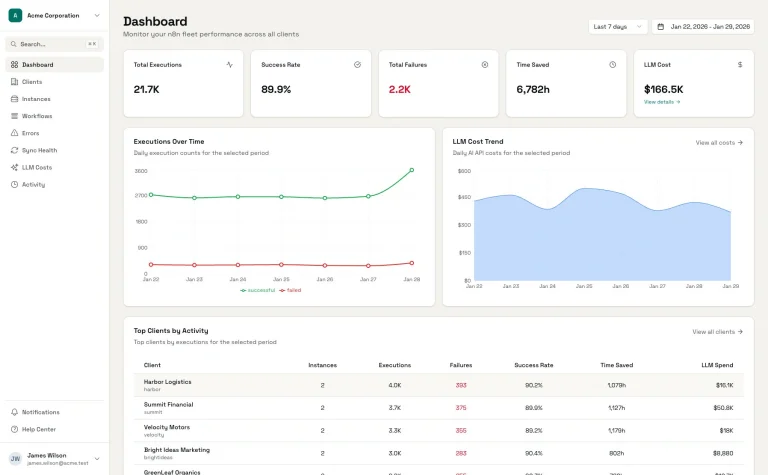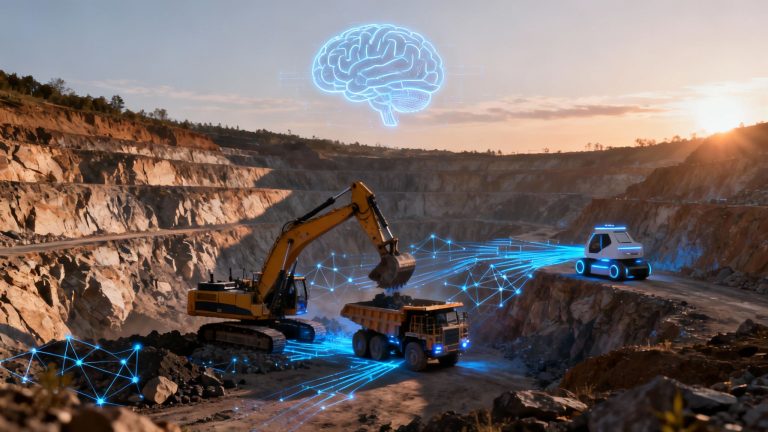
AI consultants with real life experience
Transform your business with help from Australia’s leading AI consultants. We help organisations identify artificial intelligence opportunities, develop comprehensive AI implementation strategies, build AI agents and bots, and execute successful AI transformations that drive your business forward.

Our services
Our AI consulting services
From strategic planning to implementation, our AI consultants provide end-to-end support help you navigate this brave new world.
AI Strategy Development
Comprehensive AI strategy planning including opportunity assessment, technology selection, and implementation roadmaps aligned with your business goals.
- AI readiness assessment
- Technology stack evaluation
- ROI analysis and business case development
AI Implementation Consulting
Expert guidance through the entire AI implementation process, from pilot programs to full-scale deployment across your organisation.
- Pilot program design and execution
- System integration planning
- Performance monitoring and optimisation
AI Change Management
Comprehensive change management support to ensure successful AI adoption, including training programs and communication strategies.
- Staff training and upskilling
- Communication strategy development
- Resistance management & support
AI Audit & Assessment
Comprehensive evaluation of your current AI capabilities, identifying gaps & opportunities for improvement and optimisation.
- Current state analysis
- Gap identification
- Performance benchmarking
AI Automation Consulting
Expert guidance on implementing AI-powered automation solutions to streamline operations and improve efficiency across your business.
- Process automation identification
- Workflow optimisation
- Efficiency improvement strategies
Ongoing AI Support
Continuous support and optimisation services to ensure your AI solutions remain effective and aligned with evolving business needs.
- Performance monitoring & reporting
- Continuous improvement strategies
- Technology updates & maintenance
Why choose us
Why choose our AI consultants?
Strategic AI Roadmap
We develop comprehensive AI strategies aligned with your business objectives, creating clear roadmaps for implementation that deliver measurable ROI and competitive advantages.
End-to-End Implementation
From initial assessment to full deployment, we guide you through every stage of AI adoption, ensuring seamless integration with your existing systems and processes.
Change Management
We specialise in helping organisations navigate the human side of AI transformation, providing training, communication strategies, and support to ensure successful adoption. Learn about our approach to ethical AI.
Proven Track Record
Our AI consultants have successfully delivered AI transformations across diverse industries, with a focus on practical solutions that drive real business value and sustainable growth. Read our case studies.
Our approach
Our AI consulting methodology
Our AI consultants follow our proven, systematic approach that delivers successful outcomes for your business.
Step 1
Discovery & Assessment
We begin with a comprehensive analysis of your current state, business objectives, and AI opportunities to understand your unique needs and challenges.
Step 2
Strategy Development
Based on our assessment, we develop a tailored AI strategy with clear objectives, implementation roadmap, and success metrics aligned with your business goals.
Step 3
Implementation Support
We provide hands-on guidance throughout the implementation process, ensuring smooth execution and addressing challenges as they arise.
Step 4
Optimisation & Growth
We continue to support your AI journey with ongoing optimisation, performance monitoring, and strategic guidance for future growth.
Integrations
We work hand-in-hand with you to adopt artificial intelligence
Our AI consultants ensure successful implementation and measurable business outcomes. We’ll work with you to leverage cutting-edge AI technologies and 800+ tools to create intelligent solutions that drive your business forward.








Case studies
Featured AI projects we’ve implemented recently




Improvements
Results you can expect
Australian businesses like you that embrace AI and business automation see significant improvements in productivity, efficiency, and employee satisfaction in the first 90 days.

30%
Productivity increase
90%
Reduction in manual work
20%
Cost savings
98%
Satisfaction with automation
Testimonials
What our clients say

“The team helped us automate our lead acquisition and sales process so we know what works and what doesn’t.”
Nicola Hunter
Senior VP at Monarch Medical Technologies

“We’ve worked a few AI agent and business automation projects, and it’s always been a smooth, productive experience. They’ve always brought a solid mix of technical expertise and creative problem-solving to the table.”
Yue Li
AI Automation Engineer

“Osher Digital has really helped me automate the parts of my business that were critical to automate. My copy and paste days have been reduced by around 80%.”
Lawrence Mitchell
Consulting Arborist at LSM Tree Advice

“Great operators, efficient, intelligent and understood the technical requirements. Great to find a partner like this that I’ll continue to use in the future!”
Daniel Swanton
Director at emd:digital
Get in touch
Ready to explore AI for your business?
Book a free 30-minute consultation with our Australia team. We’ll discuss your challenges, explore potential AI solutions, and give you an honest assessment of what’s possible.
No sales pressure. No obligation. Just a practical conversation about AI and automation.
+61 (07) 3357 1154
General Enquiry
FAQs
Frequently asked questions
Here are some of the questions people ask our AI consultants.
How do I know if my business is ready for AI?
Most businesses are more ready than they think. If you have repetitive manual processes, growing data volumes, or staff spending time on tasks that feel like they should be automated, you’re likely a good candidate. We start every engagement with a readiness assessment to identify quick wins and longer-term opportunities.
What’s the ROI of hiring an AI consultant?
Our clients typically see 20-30% productivity improvements and up to 90% reduction in manual work for automated processes. The ROI depends on your specific use case, but we focus on projects that pay for themselves within 3-6 months. We’ll give you an honest assessment upfront if we don’t think the numbers stack up.
Can AI replace my staff?
AI is best used to augment your team, not replace them. It handles repetitive, time-consuming tasks so your people can focus on higher-value work that requires human judgment, creativity, and relationships. Most of our clients redeploy freed-up capacity rather than reduce headcount.
What’s the difference between an AI consultant and a software developer?
A software developer builds what you tell them to build. An AI consultant helps you figure out what to build in the first place by identifying opportunities, assessing feasibility, designing solutions, and managing implementation. We combine business strategy with technical expertise
Do I need to have my data organised before engaging an AI consultant?
No. Messy data is normal and something we work with regularly. Part of our assessment process identifies what data you have, what state it’s in, and what needs to happen to make it useful. Sometimes the first step is a data cleanup project before AI implementation.
What AI tools and platforms do you work with?
We’re platform-agnostic and choose tools based on your needs, not vendor relationships. We work with OpenAI, Anthropic Claude, Google AI, Microsoft Azure, AWS, n8n, Make, and various open-source frameworks. We also build custom solutions when off-the-shelf doesn’t fit.
How is AI consulting different from buying an AI product?
Off-the-shelf AI products solve generic problems. Consulting delivers solutions tailored to your specific processes, data, and goals. A product might automate 60% of a task whereas a custom solution can automate 95%. We help you decide which approach makes sense for each use case.
What happens after the AI solution is deployed?
AI isn’t set-and-forget. Models need monitoring, retraining, and optimisation as your business evolves. We offer ongoing support packages that include performance monitoring, updates, and continuous improvement. Many clients start with a project and move to a retainer relationship.
What are the risks of implementing AI in my business?
The main risks are poor data quality leading to bad outputs, staff resistance to change, and scope creep. We mitigate these through proper assessment, change management support, and phased implementation. We also ensure compliance with Australian privacy regulations and ethical AI principles.
How do you handle confidential business information?
We sign NDAs before any engagement and can work with air-gapped systems, on-premise deployments, or Australian-hosted cloud infrastructure depending on your security requirements. Your data stays yours – we don’t use client data to train models or share it with third parties.
Where is Osher Digital based?
We’re based in Brisbane CBD at Level 38, 71 Eagle Street. While we work with clients across Australia, being Brisbane-based means we can meet face-to-face with local businesses and provide support in Australian business hours. For interstate clients, we work via video call and frequently travel for larger engagements.
Latest articles
The latest on Artificial Intelligence
-

AI Assistants Are Collaborating With Each Other Now
February 8, 2026AI agents are learning to work together, consume APIs, and execute workflows autonomously. Here’s why infrastructure, not prompts, is the real unlock. -

AI Agency Software
February 1, 2026We have productized our own internal AI agency software – administrate.dev -

AI in Mining Uncovered: How Smart Tech Boosts Safety and Profit
January 30, 2026Imagine having a partner for your operations team who never sleeps. A partner who can sift through endless streams of data from your drills, trucks, and sensors, spotting tiny clues that signal a million-dollar problem is just around the corner. That’s the real value of AI in mining. It is not about sci-fi robots; it […] -

A Plain English Guide to AI in Logistics
January 22, 2026Artificial intelligence in logistics is about giving your supply chain a brain. It is not about self-aware robots taking over the warehouse floor, but rather about using smart systems to make your entire operation more efficient, predictive, and resilient. Think of it as the ultimate co-pilot for your logistics team. It is an assistant that […] -

A Business Guide to AI Regulation in Australia
January 22, 2026Diving into AI is a bit like getting the keys to a high-performance car. You can feel the power and potential, but you also know you need to learn the rules of the road before you hit the accelerator. That’s pretty much what AI regulation is: the collection of guidelines and laws being drawn up […] -

AI failures: How to prevent them and get real value from AI
January 22, 2026When an AI project goes off the rails, it’s rarely because of a single line of bad code. The real culprits are usually found much deeper: in the quality of the data, the choice of the model, or how the whole thing fits into your existing business operations. Why so many AI projects stumble Ever […]
Ready to streamline your operations?
Get in touch with our AI consultants to see how we can streamline your operations and increase your productivity.